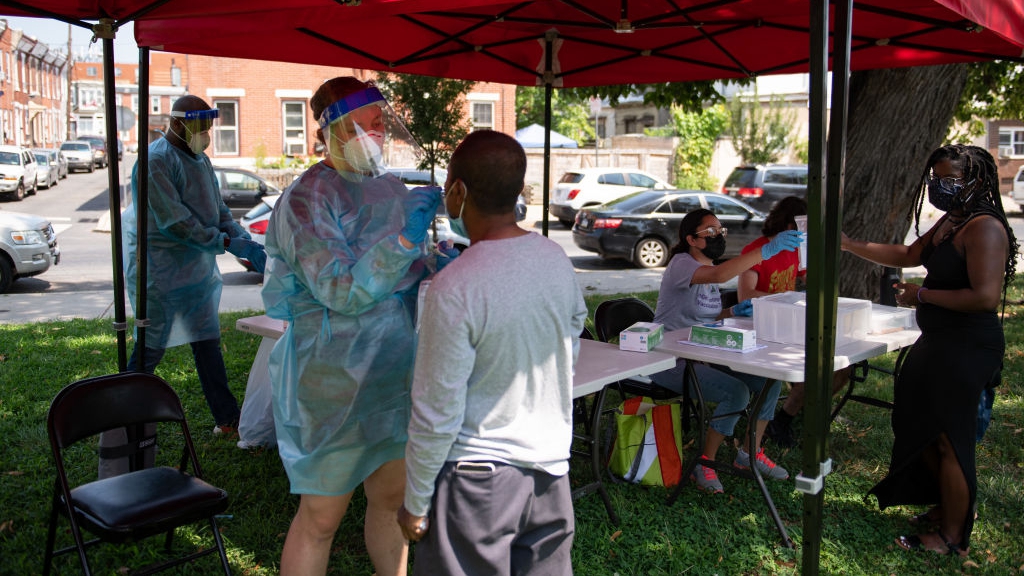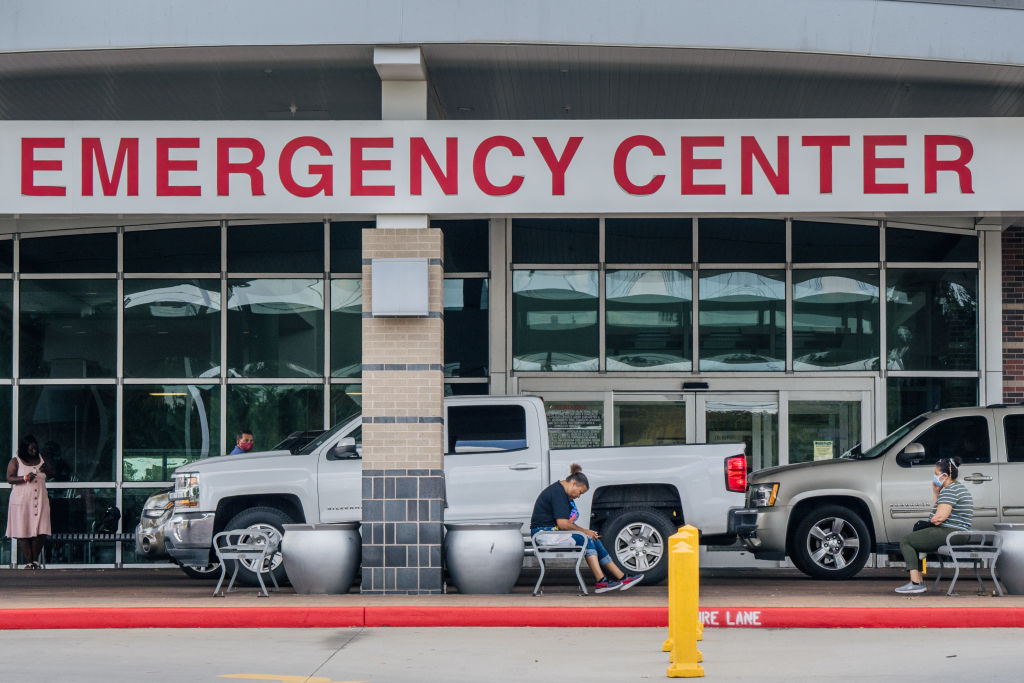
A healthcare worker administers a COVID-19 test at a testing site in Mifflin Square Park in Philadelphia, Pennsylvania, U.S., August 12, 2021. /Getty
A healthcare worker administers a COVID-19 test at a testing site in Mifflin Square Park in Philadelphia, Pennsylvania, U.S., August 12, 2021. /Getty
Editor's note: Bradley Blankenship is a Prague-based American journalist, political analyst and freelance reporter. The article reflects the author's opinions and not necessarily the views of CGTN.
The U.S. is yet again in the grips of a major wave of COVID-19 infections driven by the more transmissible Delta variant in a situation which was certainly not inevitable by any means.
As Dee Knight pointed out recently in a piece for the LA Progressive, the book Capitalism on a Ventilator, which came out last year and compares the impact of COVID-19 in China and the U.S., serves as a useful point of reference for what is actually possible when people cooperate rather than compete.
As the book notes when comparing the U.S. and China during the pandemic, China's leadership immediately put the lives and well-being of its citizens first by making bold and decisive decisions at the start of its outbreak.
It had essentially launched a full-on wartime effort against the virus, expending vast resources to expand hospital capacity, ramp up medical supply production and rolling out, as the World Bank described, "the largest expansion of insurance coverage in human history" by making virus treatment totally free of charge.
In contrast, the U.S. did the exact opposite. Even before the pandemic, the Trump administration had disbanded key groups that were meant to monitor diseases and by the time COVID-19 arrived, it had decidedly ignored it.
The administration undermined decisive actions taken by some states, did not effectively utilize its defense production authority and did not meaningfully expand health care coverage through federally-funded programs. In essence, the U.S. did the opposite of China – and that is reflected in the stark difference in infections and death.
Co-editor Lee Siu Hin summed up that "the fundamental difference between the COVID-19 fights in China and the U.S. is this: China is fighting for the people no matter the cost… On the other hand, U.S. leadership doesn't care about the people; it cares only about saving the capitalist bottom line…"
That is clearly an accurate assessment when one also examines the vast upward flow of wealth during the pandemic that exponentially widened the chasm of inequality in the United States.

People wait outside of the Lyndon B. Johnson Hospital in Houston, Texas, U.S., August 10, 2021. /Getty
People wait outside of the Lyndon B. Johnson Hospital in Houston, Texas, U.S., August 10, 2021. /Getty
Another point to consider that was not mentioned in the book since it was released last year, as well, is the countries' vaccination drives. Though hardly discussed in Western media, China has administered over 1.8 billion doses of vaccine. In contrast, the U.S. has given over 350 million doses – and even this inoculation drive is being threatened by paranoia and disinformation.
In fact, this is probably the main problem the U.S. is facing at this point in the pandemic as a torrent of anti-intellectualism is rolling through social media that has virtually put the brakes on the country's inoculation drive.
This speaks to how broken the U.S. actually is when the U.S. government put immense resources into helping develop highly effective and safe vaccines in record time, while at the same time doing little else, and still Americans are rejecting them. What a mess.
As a personal anecdote from the perspective of a U.S. citizen abroad, I can say that the COVID-19 pandemic has made me totally disillusioned with the United States. I think our government has totally failed us and I think its management of the COVID-19 pandemic is one of the greatest human rights catastrophes in recent history. The prospect of never-ending pandemics is now one of the main reasons why I don't see myself ever living there again unless things change.
The feeling I get more and more when I speak to Americans, see what Americans are saying on social media or actually visit the country is that our entire society is rotten to the core. Everything feels wrong. We are incapable of the most basic things. We are, I believe, not even a cohesive society anymore.
While this certainly seems bleak (and surely this is the attitude of many Americans), it's not actually the way it has to be. China's example serves as a case in point that cooperation simply works – and that there is a more effective way to imagine the relationship between the individual and society, namely that the individual is an inexorable part of society.
(If you want to contribute and have specific expertise, please contact us at opinions@cgtn.com.)

